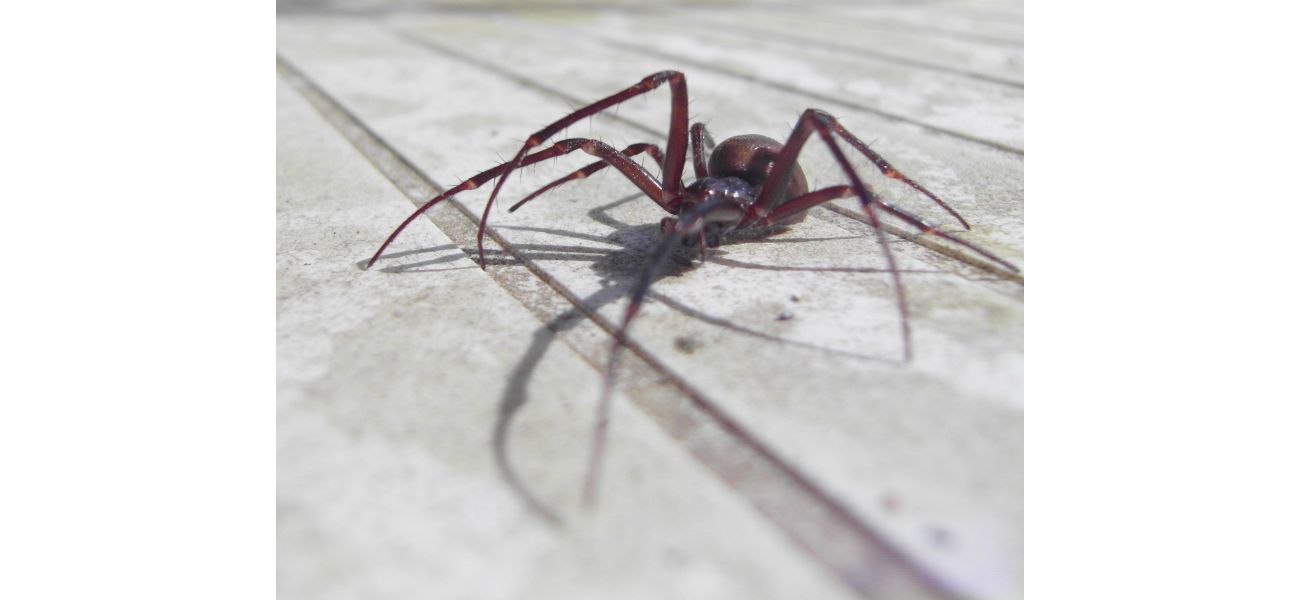Who's come out on top and who's fallen behind during the UK's chilliest summer in 10 years?
This summer has been the coldest in the past five years.
September 4th 2024.

The summer of 2024 has seen an unexpected turn of events, as the cool weather has broken records and brought about a wet season. While some may be disappointed by the lack of sunny days, there is one creature that has taken advantage of these conditions - the false widow spider.
Despite a few scattered heatwaves, the overall average temperature in the UK has been the lowest it's been since 2015. As we say goodbye to the summer season, the Met Office has issued a yellow weather warning for heavy rain in certain areas, with up to 50mm of rainfall expected. This could cause disruptions in travel and potential flooding in flood-prone areas.
The southern regions of the UK are expected to experience the most rainfall in the coming days, with some areas even seeing a month's worth of rain in just a few days. The uncertainty of where the heaviest rain will fall has caused some concern, but the Met Office is closely monitoring the situation.
While the weather may have been less than ideal for holidaymakers and some animal species, it has been perfect for the false widow spider. These infamous spiders, known for their "wasp sting" bite, thrive in wet conditions and have been making headlines due to reports of painful and infected bites. Despite their scary reputation, the Wildlife Trust reminds us that they only bite when handled roughly.
However, not all species have been benefiting from the cooler summer. Bats, butterflies, and barn owls are just a few examples of animals that may struggle in these conditions. Sara Booth-Card, a campaigner for Action for Insects, explains that the past year has seen a variety of weather patterns, from a wet winter and spring to a cool summer. This can have a negative impact on the insect population, which in turn affects the animals that rely on them for food.
Booth-Card also points out that the decline in insect populations cannot be attributed to just one year of unusual weather. Habitat loss and the use of pesticides have been major factors in the decrease of insect numbers over the past few decades. This has had a ripple effect on other species, such as bats and birds, who are also struggling to find food. Rescue centers have reported an increase in hungry bats being brought in due to the lack of insects available.
In conclusion, while the wet summer may have been a disappointment for some, it has been a blessing for others. The false widow spider has thrived in these conditions, while other species have struggled. As we look towards the future, it's important to remember the impact that weather and human actions can have on the delicate balance of nature.
Despite a few scattered heatwaves, the overall average temperature in the UK has been the lowest it's been since 2015. As we say goodbye to the summer season, the Met Office has issued a yellow weather warning for heavy rain in certain areas, with up to 50mm of rainfall expected. This could cause disruptions in travel and potential flooding in flood-prone areas.
The southern regions of the UK are expected to experience the most rainfall in the coming days, with some areas even seeing a month's worth of rain in just a few days. The uncertainty of where the heaviest rain will fall has caused some concern, but the Met Office is closely monitoring the situation.
While the weather may have been less than ideal for holidaymakers and some animal species, it has been perfect for the false widow spider. These infamous spiders, known for their "wasp sting" bite, thrive in wet conditions and have been making headlines due to reports of painful and infected bites. Despite their scary reputation, the Wildlife Trust reminds us that they only bite when handled roughly.
However, not all species have been benefiting from the cooler summer. Bats, butterflies, and barn owls are just a few examples of animals that may struggle in these conditions. Sara Booth-Card, a campaigner for Action for Insects, explains that the past year has seen a variety of weather patterns, from a wet winter and spring to a cool summer. This can have a negative impact on the insect population, which in turn affects the animals that rely on them for food.
Booth-Card also points out that the decline in insect populations cannot be attributed to just one year of unusual weather. Habitat loss and the use of pesticides have been major factors in the decrease of insect numbers over the past few decades. This has had a ripple effect on other species, such as bats and birds, who are also struggling to find food. Rescue centers have reported an increase in hungry bats being brought in due to the lack of insects available.
In conclusion, while the wet summer may have been a disappointment for some, it has been a blessing for others. The false widow spider has thrived in these conditions, while other species have struggled. As we look towards the future, it's important to remember the impact that weather and human actions can have on the delicate balance of nature.
[This article has been trending online recently and has been generated with AI. Your feed is customized.]
[Generative AI is experimental.]
0
0
Submit Comment





